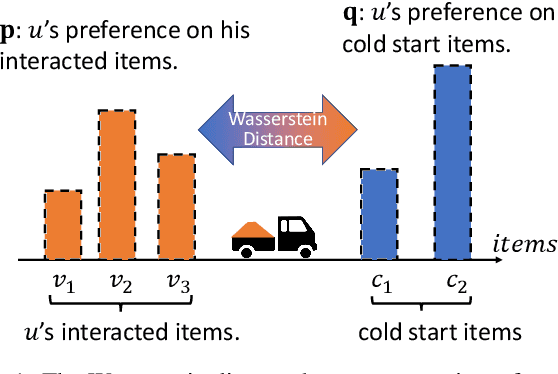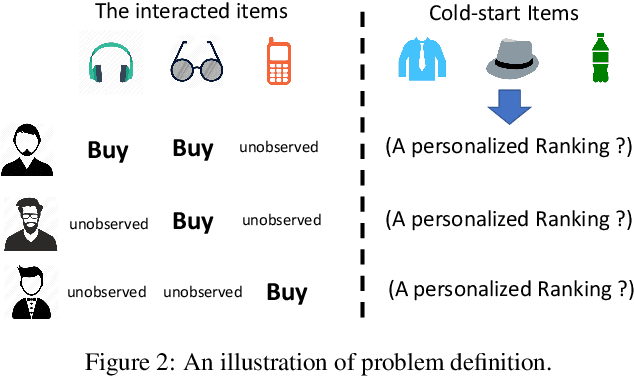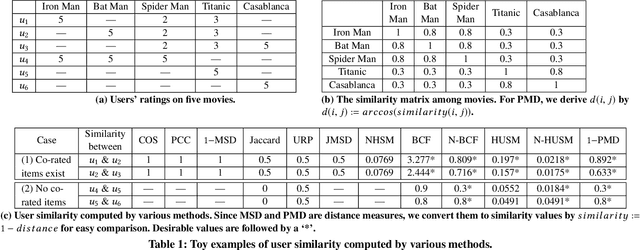Yitong Meng
The item selection problem for user cold-start recommendation
Oct 27, 2020



Abstract:When a new user just signs up on a website, we usually have no information about him/her, i.e. no interaction with items, no user profile and no social links with other users. Under such circumstances, we still expect our recommender systems could attract the users at the first time so that the users decide to stay on the website and become active users. This problem falls into new user cold-start category and it is crucial to the development and even survival of a company. Existing works on user cold-start recommendation either require additional user efforts, e.g. setting up an interview process, or make use of side information [10] such as user demographics, locations, social relations, etc. However, users may not be willing to take the interview and side information on cold-start users is usually not available. Therefore, we consider a pure cold-start scenario where neither interaction nor side information is available and no user effort is required. Studying this setting is also important for the initialization of other cold-start solutions, such as initializing the first few questions of an interview.
Wasserstein Collaborative Filtering for Item Cold-start Recommendation
Sep 10, 2019



Abstract:The item cold-start problem seriously limits the recommendation performance of Collaborative Filtering (CF) methods when new items have either none or very little interactions. To solve this issue, many modern Internet applications propose to predict a new item's interaction from the possessing contents. However, it is difficult to design and learn a map between the item's interaction history and the corresponding contents. In this paper, we apply the Wasserstein distance to address the item cold-start problem. Given item content information, we can calculate the similarity between the interacted items and cold-start ones, so that a user's preference on cold-start items can be inferred by minimizing the Wasserstein distance between the distributions over these two types of items. We further adopt the idea of CF and propose Wasserstein CF (WCF) to improve the recommendation performance on cold-start items. Experimental results demonstrate the superiority of WCF over state-of-the-art approaches.
PMD: A New User Distance for Recommender Systems
Sep 10, 2019



Abstract:Collaborative filtering, a widely-used recommendation technique, predicts a user's preference by aggregating the ratings from similar users. As a result, these measures cannot fully utilize the rating information and are not suitable for real world sparse data. To solve these issues, we propose a novel user distance measure named Preference Mover's Distance (PMD) which makes full use of all ratings made by each user. Our proposed PMD can properly measure the distance between a pair of users even if they have no co-rated items. We show that this measure can be cast as an instance of the Earth Mover's Distance, a well-studied transportation problem for which several highly efficient solvers have been developed. Experimental results show that PMD can help achieve superior recommendation accuracy than state-of-the-art methods, especially when training data is very sparse.
 Add to Chrome
Add to Chrome Add to Firefox
Add to Firefox Add to Edge
Add to Edge